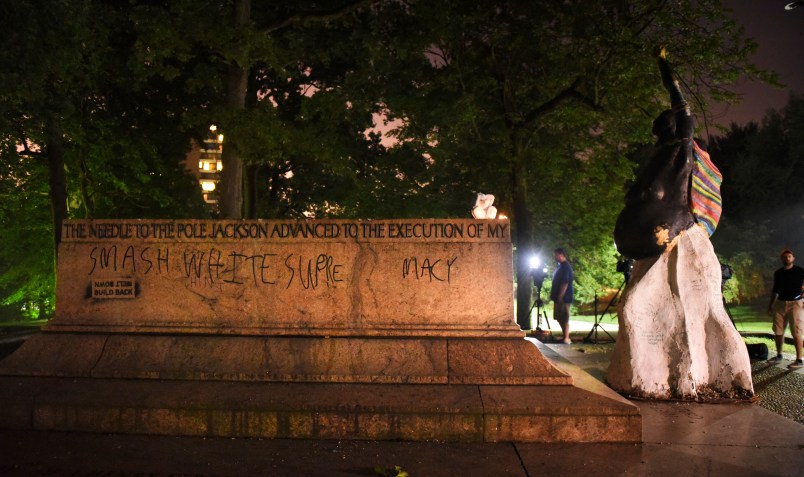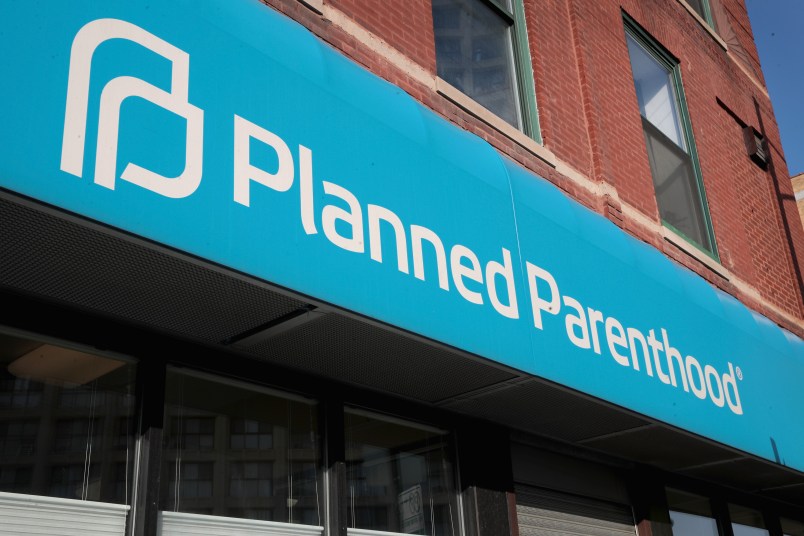President Donald Trump argued against the removal of Confederate statues and monuments on Thursday, just days after a woman died in Charlottesville, Virginia amid a violent white supremacist rally. The protest was organized ostensibly against the removal of a statue of Confederate Gen. Robert E. Lee from a park.
Sad to see the history and culture of our great country being ripped apart with the removal of our beautiful statues and monuments. You…..
— Donald J. Trump (@realDonaldTrump) August 17, 2017
…can't change history, but you can learn from it. Robert E Lee, Stonewall Jackson – who's next, Washington, Jefferson? So foolish! Also…
— Donald J. Trump (@realDonaldTrump) August 17, 2017
…the beauty that is being taken out of our cities, towns and parks will be greatly missed and never able to be comparably replaced!
— Donald J. Trump (@realDonaldTrump) August 17, 2017
The White House said Trump’s tweets “speak for themselves,” according to a pool report.
Trump’s endorsement of Confederate monuments came after his failure to firmly condemn the white supremacists who organized the rally.
Though he did disavow the Ku Klux Klan, neo-Nazis and white supremacists by name on Monday, on Tuesday he returned to directly comparing the white supremacist protesters and the counter-protesters who demonstrated against them.
“I have condemned many different groups,” he said. “But not all of those people were neo-Nazis, believe me. Not all of those people were white supremacists, by any stretch. Those people were also there because they wanted to protest the taking down of a statue, Robert E. Lee.”
“I think there’s blame on both sides,” he said, referring to white supremacists and counter-protesters.
Many in Trump’s administration were reportedly dismayed at his seeming endorsement of the extreme far-right — the Charlottesville protests were organized by explicitly white supremacist groups, regardless of anyone “also there” on behalf of the statue — though none resigned in response to his remarks.
White House chief strategist Steve Bannon, who formerly ran the far-right news outlet Breitbart News, was reportedly “thrilled” at the press conference. And Trump reportedly believed he took the correct position in blaming both sides.
On Wednesday, Trump’s personal lawyer John Dowd forwarded an email comparing Lee and President George Washington to lawyers and friends. The New York Times later published its contents.
It echoed an argument Trump had made Tuesday, and again Thursday morning.
“I wonder, is it George Washington next week and is it Thomas Jefferson the week after?” he asked Tuesday. “You really do have to ask yourself, where does it stop?”
But Trump’s statements Thursday mark the first time as President that he has thrown his weight so forcefully behind monuments to the Confederacy, which were primarily erected in the 20th century, not the 19th.
The President also fundamentally changed his position since Tuesday, when he said localities should determine on their own the fate of Confederate monuments. “I would say that’s up to a local town, community, or the federal government, depending on where it is located,” he said at the time.
This post has been updated.








All of a sudden he cares about beautiful art? So, the NEA is safe?
His love of the traitorous CSA certainly comports with the rest of his anti-Americanism. Why does Trump hate America and love its enemies?
Alternate Headline: Trump Continues to Make His Administration Impotent
So statutes memorializing traitors who took up arms and slaughtered more United States citizens than Hilter, Imperial Japan or Osama bin Ladin could ever dream of, are “beautiful” to Trump.
Because America (as a whole) doesn’t love him. In that way, it’s truly as simple as that.